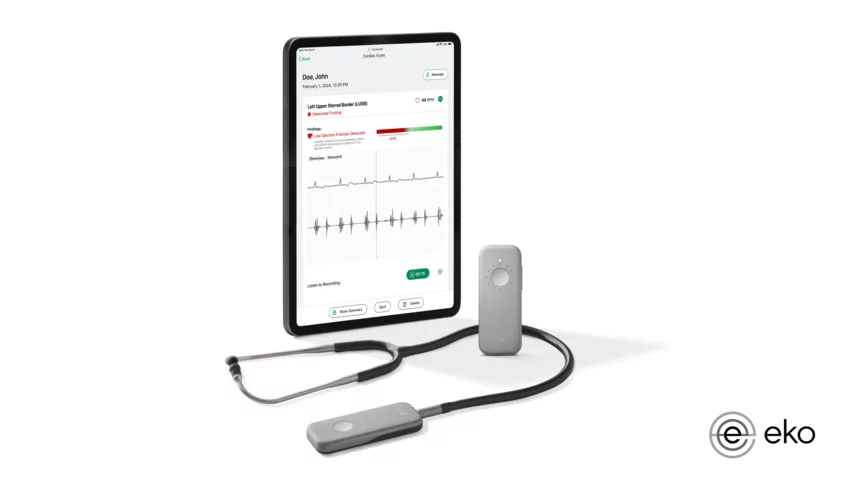FDA approves new AI model for detecting signs of heart failure with a stethoscope
Eko Health, the California-based healthcare technology company known for its advanced stethoscopes, has received U.S. Food and Drug Administration (FDA) approval for a new artificial intelligence (AI) offering designed to detect low ejection fraction (EF). The newly approved algorithm is designed to work in just 15 seconds; it automatically runs when users conduct routine physicals with one of Eko Health’s stethoscopes.
Eko Health developed this AI offering with heart failure in mind. By getting the technology in the hands of physicians, the company hopes symptomatic patients can be identified earlier than normal, improving their chances of receiving the care they need.
Low Ejection Fraction AI is the latest addition to Eko Health’s Sensora Cardiac Early Detection Platform. It joins other FDA-approved algorithms for identifying signs of atrial fibrillation and structural heart murmurs.
Eko Health worked closely with Mayo Clinic on Low Ejection Fraction AI, collaborating with its physicians to ensure the technology could work with a variety of patient populations.
“The ability to identify a hidden, potentially life-threatening heart condition using a tool that primary care and subspecialist clinicians are familiar with—the stethoscope—can help us prevent hospitalizations and adverse events,” Paul Friedman, MD, chair of the department of cardiovascular medicine at Mayo Clinic in Rochester, Minnesota, said in a statement announcing the news. “Importantly, since a stethoscope is small and portable, this technology can be used in urban and remote locations, and hopefully help address care in underserved areas.”
“The stethoscope, the most recognizable symbol of healthcare, touches the lives of an estimated 1 billion people around the globe every year”, added Connor Landgraf, co-founder and CEO of Eko Health. “With Eko’s Low EF AI, we’ve transformed the icon of medicine into an AI-powered heart failure early detection tool that can help improve access to care for millions of patients, at a fraction of the time and cost of echocardiography. It’s been a privilege to work alongside Mayo Clinic in this groundbreaking endeavor.”


